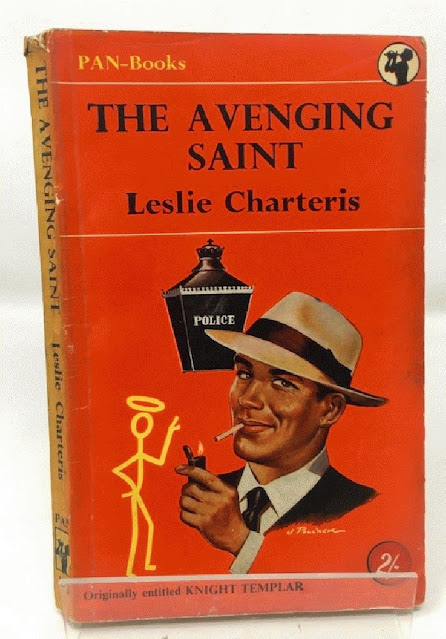In the article about two temptation scenes in Jonathan Stroud's Lockwood & Co. books, people are advised to beware of anyone who tries to influence them by telling them that they are cut out for better things and enlist them by tempting them with the offer of a powerful position.
The tempters offer whatever they think will work: instead of or in addition to power they might offer money or secret knowledge for example, or they may tell their victims that they will get a chance to help others or have better opportunities to show what they can do.
In these situations it is essential to think about what might be in it for the tempters and what their underlying motives are. It is also important to prepare for the worst after rejecting the tempters' offers: saying 'no' is asking for trouble. All hell may even break loose!
The behaviour of Penelope Fittes, glamorous head of the great Fittes Agency and a major character in the books, towards Lucy Carlyle and her fellow members of the Lockwood & Co. Agency provides a good illustration of these points.
After the first, unsuccessful, temptation of Lucy Carlyle, Penelope Fittes becomes increasingly determined to get what she wants from Lucy and her colleagues. This article gives some details of the attempts she makes in The Creeping Shadow, the fourth book in the Lockwood series, to manipulate the young agents and gain control of Lockwood & Co.
Penelope Fittes get to work
After her agent fails to tempt Lucy into working for her, Penelope Fittes gets on the case herself.
At the start of The Creeping Shadow, Lucy has left Lockwood & Co. to work as a freelance psychical investigation agent. She has not seen her old colleagues for several months, but that soon changes.
Penelope Fittes, who has been monitoring the activities of Lockwood & Co., offers a big, difficult and dangerous ghost-hunting assignment to Anthony Lockwood, who persuades Lucy to work with him on the case.
Lucy is rather suspicious of Penelope Fittes' motives: after all, she has a huge number of her own Fittes agents at her disposal so why would she want to involve Lockwood & Co? Lucy is quite right to distrust Penelope, but she realises that this assignment would be good publicity for her and she wants to help her old colleagues out so she puts her doubts aside and decides to take on the job.
She goes with the others to Fittes House for a briefing. Penelope Fittes tells Anthony Lockwood that they can do great things together in the future. She also flatters Lucy, revealing that she asked for her specifically: she had told Anthony Lockwood that he would get the commission only if he could persuade Lucy to come back and work for him.













